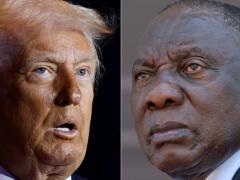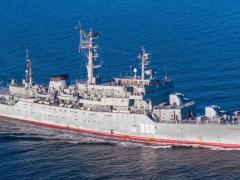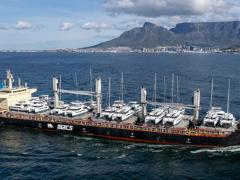A multi-million rand project at the Port of Saldanha is well on its way down the drain, because of a lack of communication by Transnet National Ports Authority (TNPA) and because the authority unilaterally changed the original contract conditions. The project was devised by Dutch-based Universal Africa Lines (UAL) – a specialist shipping service to the West African oil and gas industries – to develop an oil and gas shipping supply hub to serve the line’s interests up the African west and east coasts. As part of the plan, UAL opened an SA branch in 2009 and appointed Seaclad as its SA general agent. In 2010 the line arranged a three-year time charter of the UAL Cape Town – a 12 500-tonne deadweight (dwt) vessel with dual deck cranes and a combined lifting capacity of 160t. This was deployed on a monthly service to supply West African oil and gas exploration and production bases from SA. The service mainly ships specialist equipment and supplies to the oil and gas exploration and production industries along the West African coast. But, as a conventional carrier, it also ships a variety of breakbulk and containerised cargo. South Africa, according to Roger Jungblut, chairman of the UAL Alliance and CEO of the SA operation, is the preferred hub for the operation, thanks mainly to it being an increasingly important source of supplies and services to support the “bustling activity in the West African oil theatre” – which produces around five to six million barrels a day, or about 15% of the world’s crude oil supply. “SA is preferred for the strength of its manufacturing and mining industries, and its servicing expertise,” he told FTW. “SA engineering and technical know-how is in particularly high demand, as there is a big need for servicing of highly specialised equipment.” Jungblut added that the SA manufacturing, mining, engineering, agricultural, building and construction industries were all in a good position to serve West Africa. But trying to develop this vital hub operation at Saldanha has met with an unco-operative response from TNPA – and UAL has cancelled the proposed deal with the port authorities. “UAL’s decision to withdraw from the project,” Jungblut told FTW, “was based on 16 months of negotiations not coming to a result needed to operate such a base. “The UAL group has 37 years of experience in the industry, and, based on this, we know that decisions have to be taken within a short period of time.” But this failed to happen, and, Jungblut added: “As a result, UAL could not deliver to the industry as anticipated when negotiations originally started.” It is now looking at options to create a supply hub in other African countries, he added, including Mozambique and Namibia. The poor response from TNPA was also met with criticism from other interested parties. Western Cape Finance MEC Alan Winde was quoted in the press saying that, some years ago, he had got Jungblut interested in investing in SA, but that Jungblut had subsequently “run into a barrage of red tape” at Transnet. And, although it was difficult to say just how much the project would generate, an indication of the potential of the business was that 100 oil rigs passed SA each year, Winde added. “Only three were serviced in the country last year, one in Saldanha, which brought R100 million into the area.” Warwick Blyth, the executive director of the SA Oil and Gas Alliance, was also concerned about the scheme coming to grief, and had written to the TNPA chief executive, Tau Morwe, expressing concern that Transnet appeared to have let the deal slip. Since then, Morwe has responded to the criticism and the UAL decision to withdraw. In a communication sent last week to FTW, he said: “The decision by a critical player such as UAL to withdraw from the Saldanha oil and gas service base project is regretted. “TNPA is committed to delivering integrated, efficient, safe, reliable and cost-effective services to promote economic growth. We will pull out all the stops to win a share of this business for South Africa.” He also gave reasons for the length of time the discussions had taken. “From the outset,” he said, “TNPA had indicated the anticipated delays in concluding the agreement. “Environmental impact assessment (EIA) approvals – out of TNPA’s control – and construction timeframes had the potential of drawing out the implementation of the project.” But Morwe added, following further discussions with TNPA, UAL had decided to reconsider its decision to withdraw and was to “reconfirm its decision within the next two weeks”. This was met with a conditional response from Jungblut. “It is correct that UAL has withdrawn and is reconsidering their development depending on TNPA promises to improve facilities as per our last discussion,” he told FTW.












